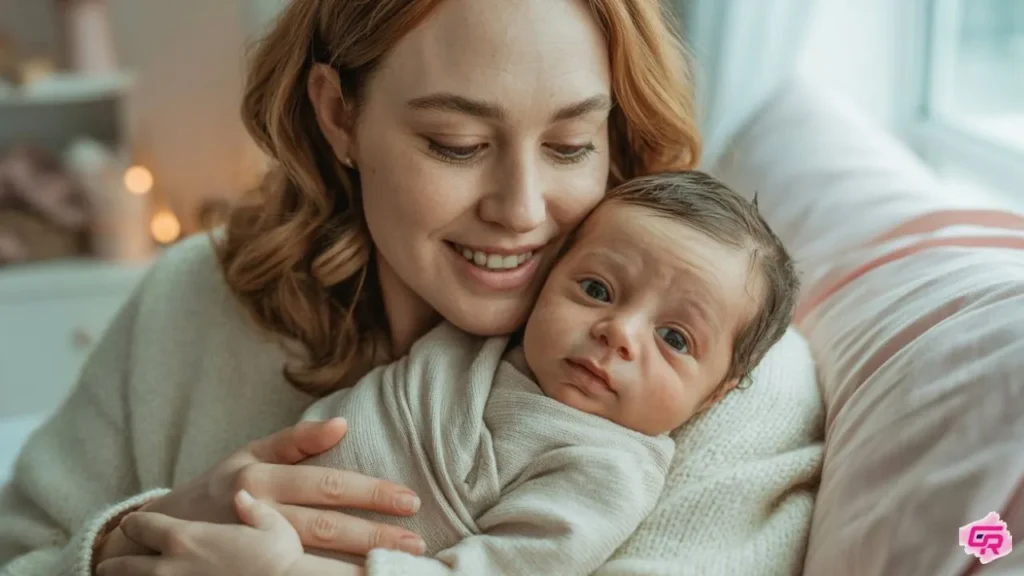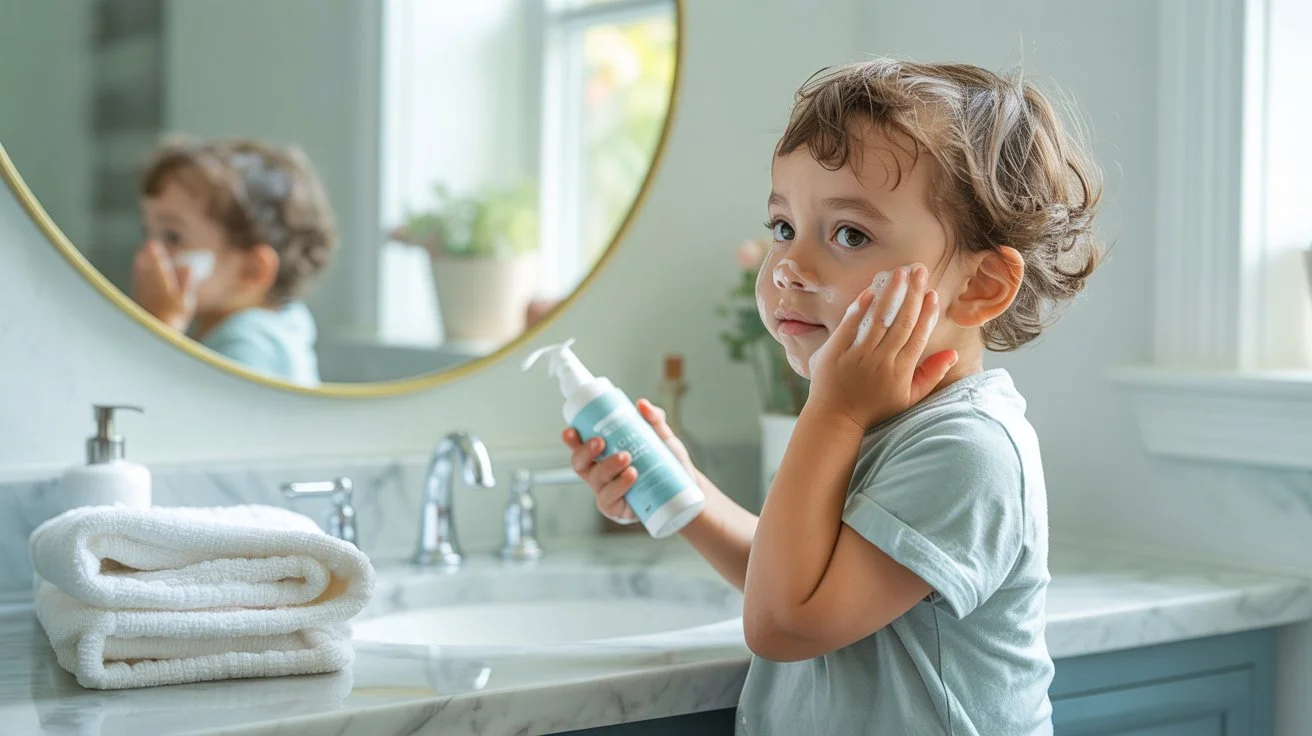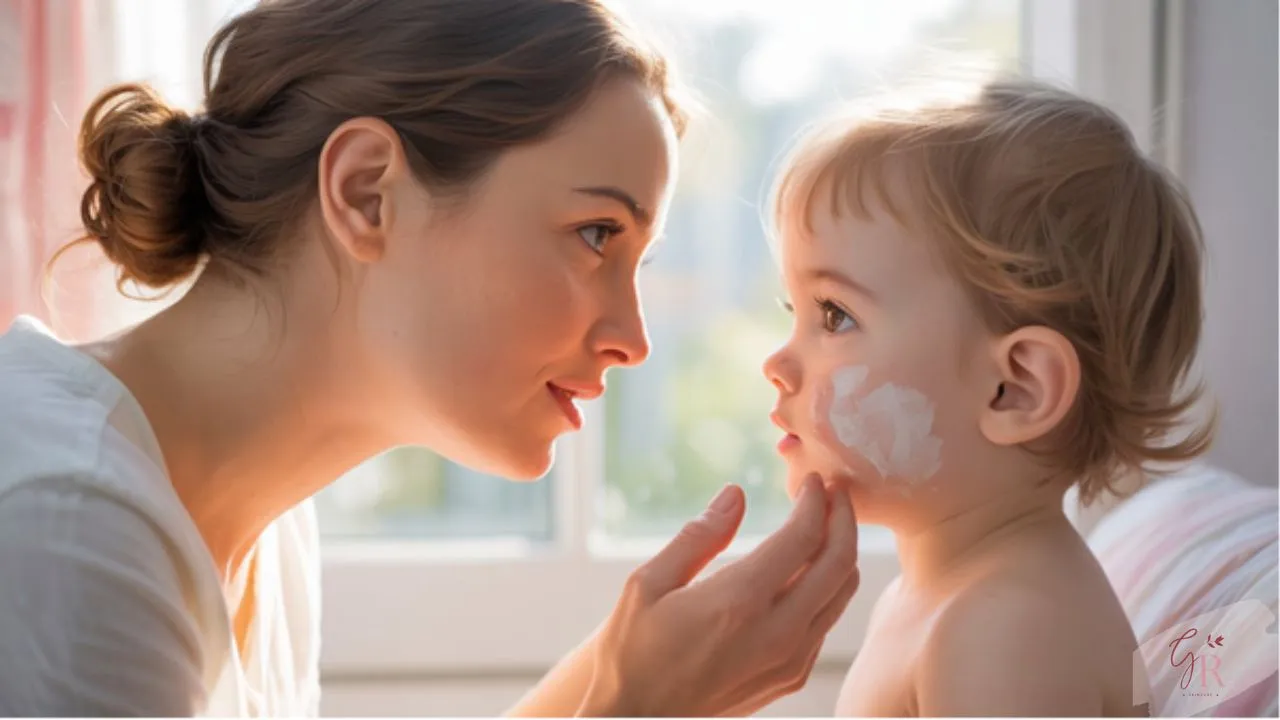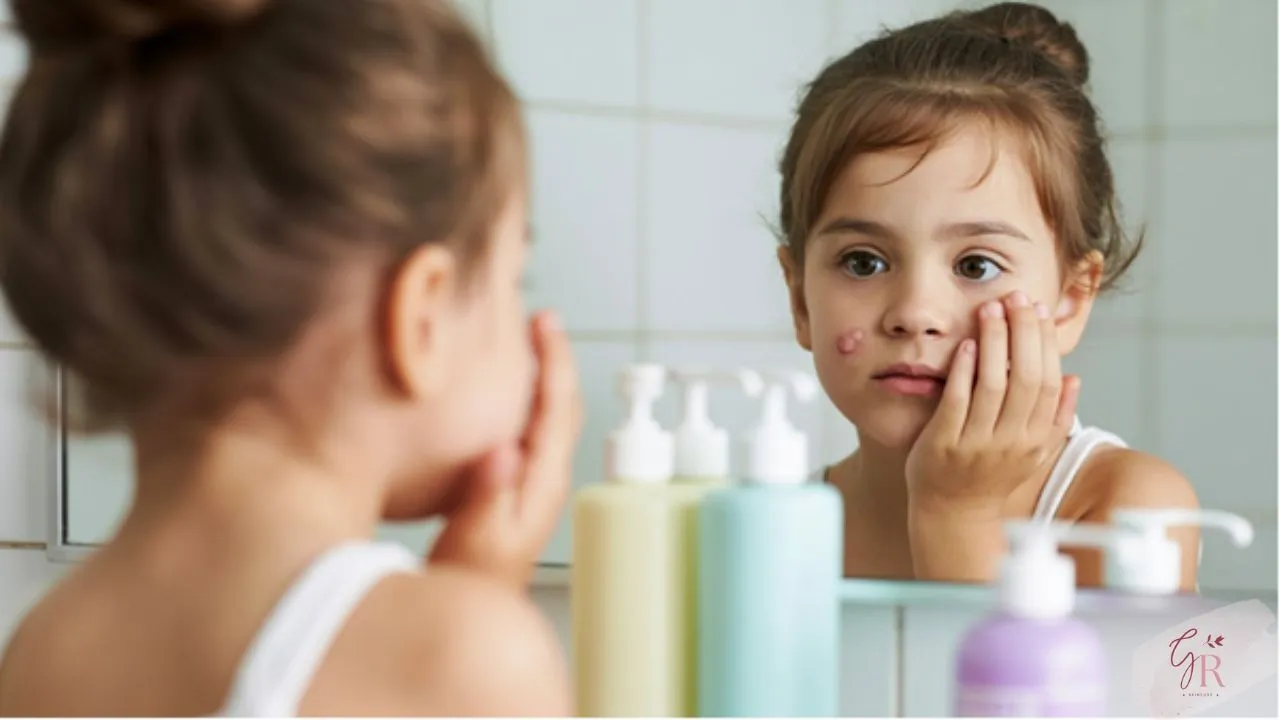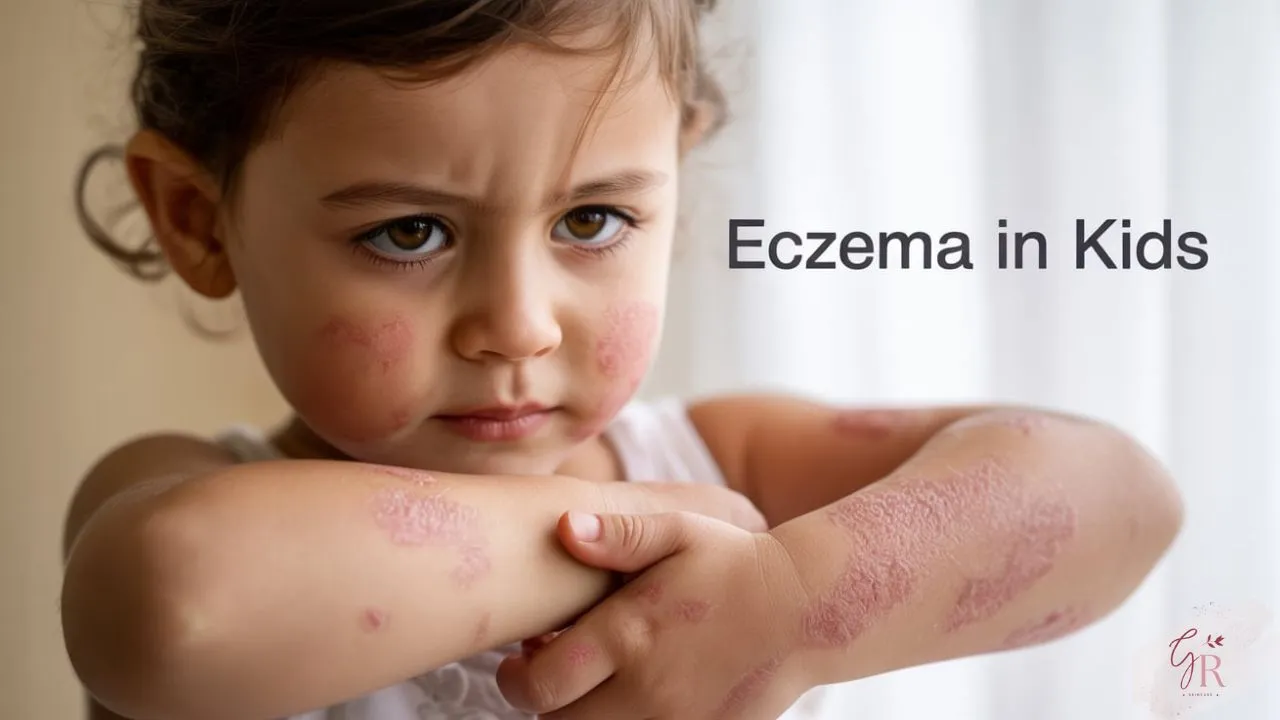It can be heartbreaking to see tiny red bumps suddenly appear on your baby’s soft little face. Every mother thinks, “Is it an allergy? Is it an infection? Did I make a mistake?” But it is true that baby acne is very common – and absolutely normal. It happens to 20% of newborn babies, usually within a few weeks of birth.
If you are wondering how to treat baby acne at home – then you are not alone. And you are definitely not a wrong parent. This stage goes on. But until then, let’s explore some gentle and natural remedies that you can easily try at home – they are safe and effective.
Your baby needs peace – and you too.
How Common Is Baby Acne in Newborns?
If you have noticed small red or white pimples on your newborn baby’s cheeks, chin or forehead, don’t worry – you are not alone. About 20% of newborn babies get baby acne in the first few weeks. It can be a little scary at first, but it is usually harmless and goes away on its own after a while.
Many moms think that maybe a certain cream did not suit them or there was something in their diet that caused the pimples. But actually, these are the mother’s hormones that are transferred to the baby during pregnancy – and this is part of the natural development of the baby’s skin.
Keep in mind that baby acne and skin issues like eczema, heat rash or cradle cap are different things. If the pimples are dry, scaly or spread quickly, make sure to see a pediatrician. But if it’s normal baby acne, there’s no need to worry too much.
What Causes Baby Acne?
When you understand why baby acne occurs, it becomes very easy to handle it. Below we are mentioning the common reasons that cause small pimples on baby’s face – and you will also know how to treat baby acne at home gently and naturally.
Hormonal Transfer from Mother
The most common reason is that mother’s hormones go into baby’s body through pregnancy or breastfeeding. Due to these hormones (especially androgens) baby’s oil glands get activated and small pimples appear. This is a completely normal process – you will get better with time. According to the American Academy of Dermatology
Sensitive Baby Skin & Overwashing
Newborn skin is very sensitive. Often parents start washing their face daily, thinking that washing too much will keep the skin clean. But this removes natural oils and irritates the skin even more. Washing the face once a day with lukewarm water is sufficient.
Use of Harsh Products
Some lotions, soaps or detergents may be too strong for babies. Products containing fragrance, alcohol or heavy oils can clog pores and increase acne. It is best to use products labeled “fragrance-free”, “hypoallergenic” or “gentle for babies” — these protect the skin barrier.
Breastmilk or Saliva Irritation
If breast milk or baby’s own saliva stays on the face for too long, it can cause irritation. This is not harmful — but it can trigger baby acne if the skin stays too moist for too long. It is best to wipe gently with a soft cloth.
Weather & Sweat Buildup
Baby’s face sweats more in hot or humid weather, which, when mixed with oil and dirt, can cause acne. In such weather, make the baby wear light clothes and keep the room cool. Cotton clothes allow the skin to breathe well.
Why It’s Important Not to Touch or Pop Baby Acne
As tempting as it may be, you should never squeeze, scratch or pop baby pimples. Baby acne is actually a temporary skin issue — which in most cases clears up on its own without any treatment.
If you ignore or pop it:
- Bacteria can spread, which can lead to infection
- Skin redness, inflammation or scarring can occur
- The natural healing process is slowed down
Your baby’s skin is still in the developing phase — it is learning to balance its oil and create a skin barrier. Getting involved in this process can make the acne even worse.
When you’re wondering how to treat baby acne at home, the safest and most effective way is gentle care and a little patience. Just wipe your face softly with a slightly wet cloth once a day – don’t do any rubbing or use strong products.
The baby’s skin will clear up on its own in a little while.
How to Treat Baby Acne at Home
It’s perfectly normal to worry when you see small pimples on your little baby’s face. But the good news is that most baby acne clears up on its own – no strong treatment is needed.
So it’s best to follow simple and gentle care routines that allow your baby’s skin to heal naturally. These are the safe and effective ways on how to treat baby acne at home:
Wash Gently with Lukewarm Water (Twice a Day)
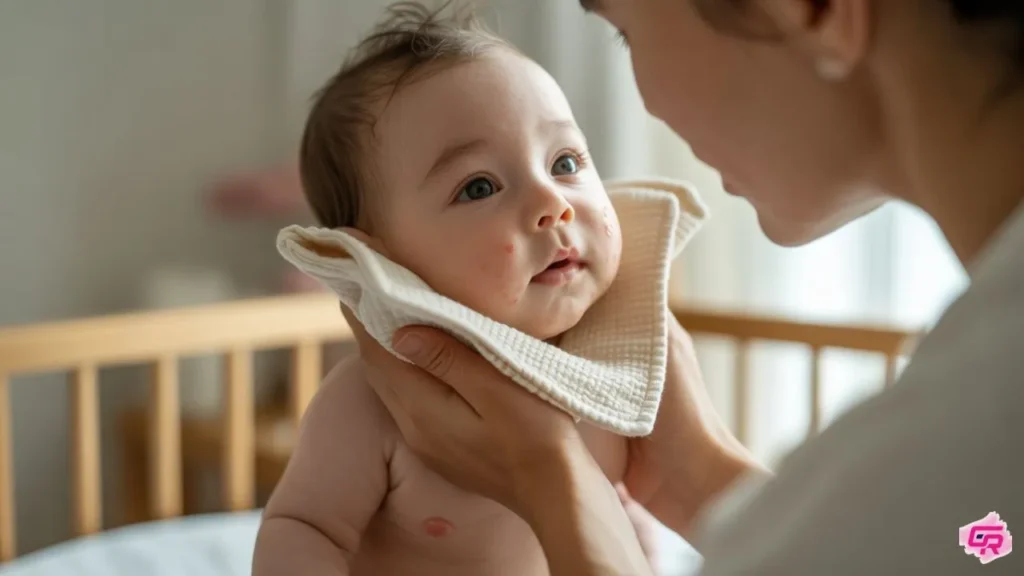
Using clean, lukewarm water and a super-soft washcloth, gently wipe your baby’s face once or twice a day. No need for soaps unless the face is visibly dirty.
- Avoid scrubbing — baby skin is extremely delicate
- Always pat dry gently with a soft towel
- Lukewarm (not hot) water helps soothe inflammation
Breastmilk Dab Technique (Anti-inflammatory Benefits)
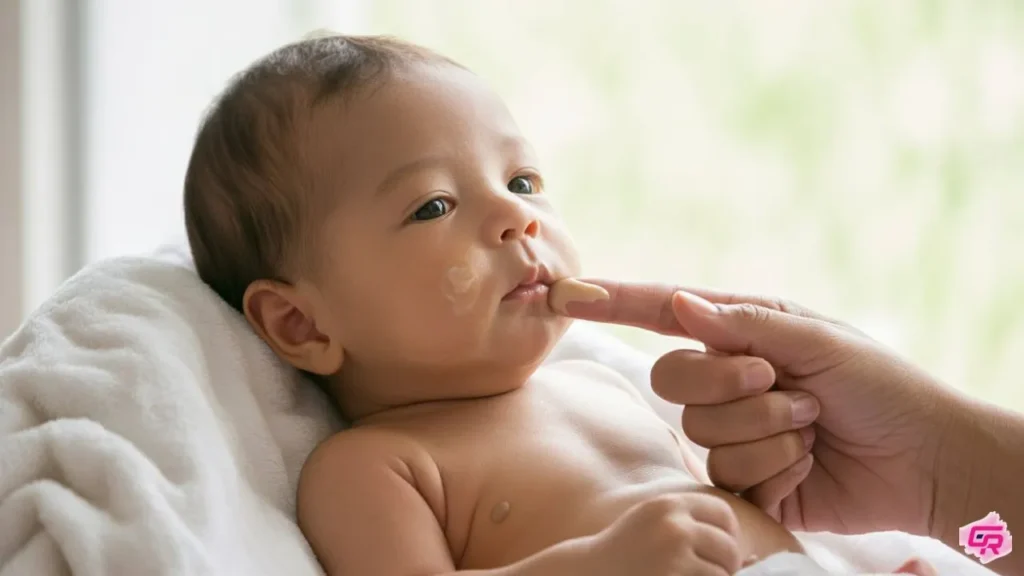
Breast milk is not just milk, but has natural antibacterial and soothing properties. With a clean fingertip or cotton pad, apply a few drops of milk on baby acne – one or two dabs during the day.
- Let the milk dry naturally
- Reduces redness and swelling
- This option is easily available for breastfeeding moms
Use a Mild, Fragrance-Free Cleanser
If you want to use a cleanser then:
- It should be hypoallergenic and fragrance-free
- It should be made only for babies
Only use it once a day (preferably at night) and rinse thoroughly with lukewarm water. Never use adult soaps, which can strip your baby’s natural oils.
Aloe Vera Gel (Patch-Test First)
Aloe vera gel is cold and soothing, but:
- Always use fragrance-free, organic aloe vera
- First do a patch test on the baby’s hand (wait for 24 hours)
- If there is no allergy, apply a very light layer on the face
This is a very mild and natural remedy for gentle baby skincare.
Avoid Oils, Lotions & Ointments
Often parents think of applying lotion or oil – but don’t. Most creams and oils clog pores and worsen baby acne.
- Skip coconut oil, baby powder, petroleum jelly
- Let the skin breathe and heal on its own
Keep Baby’s Face Dry and Clean (Avoid Drool Buildup)
Baby’s drool, milk or sweat can further irritate acne. Clean your face gently with a soft cloth throughout the day.
- Do not let milk accumulate on the face after feeding
- Use burp cloth during feeding
Use Soft Organic Cotton Towels
Towels and washcloths that touch your baby’s skin should be:
- 100% organic cotton
- Washed with fragrance-free detergent
- Air-dried or dried without harsh fabric softeners
Rough or scented towels can cause micro-irritations or worsen the rash.
📌 Pro Tips: Baby Acne Care Cheat Sheet
- ✅ Clean baby’s face 1–2 times a day with plain water
- ❌ Avoid using coconut oil, talcum powder, scented products
- ✅ Always patch test anything new (even natural remedies)
- ⏰ Don’t overdo it — baby acne usually resolves in 2–4 weeks
Your baby’s skin knows how to heal — we just need to step back and let it.
Frequently Asked Questions (FAQs)
Does breast milk help with baby acne?
Yes, breast milk can help calm baby acne. It has natural anti-inflammatory properties. Applying a little milk 1-2 times daily can soothe red pimples. This is a safe homemade remedy for baby acne.
Can I use coconut oil on my baby’s face?
It is better not to apply coconut oil. It can block small pores and make baby acne worse. If you are wondering how to treat baby acne at home, it is important to avoid coconut oil.
How long does baby acne last?
Most baby acne gets cured on its own in 2 to 6 weeks. There is no need for any strong cream. Follow safe skincare steps and be patient – hair gets cured even after leaving this problem.
Is baby acne painful?
No, baby acne is usually neither painful nor itchy. It just looks a little red and bumpy. But if you take gentle care you can avoid irritation.
Should I stop breastfeeding if my baby has acne?
Not at all. Breastfeeding is not the answer to baby acne – in fact breast milk helps treat it naturally. If you are thinking of treating baby acne at home, do not stop breastfeeding.
How do I tell the difference between rash and acne?
Baby acne often has small red or white pimples on the cheeks, nose or forehead. When the rash is more patchy or dry, consult a doctor if you are confused.
Conclusion
Remember mama – every baby’s skin is different and is still developing. What works for one baby, doesn’t necessarily work for others – and that’s perfectly fine. Baby acne is a very normal thing, and generally does not cause harm.
If you are wondering how to treat baby acne at home, the answer is: with love, patience, and natural ways. Don’t use harsh creams or strong remedies. Your baby’s skin just needs a little support and time.
Just keep taking care of her with love – with clean hands, soft cotton, and a completely peaceful heart. You are a good mother. If you are ever confused, ask in the comments or share your experience – you are not alone.
Sources:
https://www.aad.org/public/diseases/acne/really-acne/baby-acne
https://www.healthline.com/health/childrens-health/baby-acne
https://www.healthline.com/health/baby/baby-acne-breast-milk
Hi, I’m Ramsis — a passionate skincare researcher who believes in the power of gentle, natural care for kids and teens. I spend my time studying dermatology-backed methods and safe home remedies to help parents make confident skincare choices. Every tip you read here is carefully researched and simplified just for you!

